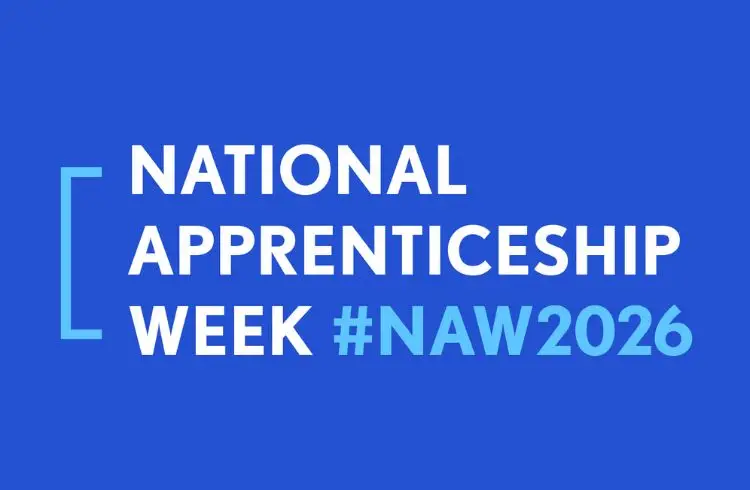Business Administration Apprenticeships
Level 3 Business Administration Apprenticeships
Administrators support and engage with different departments, working independently or as part of a team, in order to develop and implement core administrative services.
Our business admin level 3 apprenticeship is a structure training programme designed to improve the performance of your teams. Combining practical experience with qualifications, your organisation can benefit from motivated apprentices who have a solid understanding of administrative principles and practices.
In addition to our standard programme, we also offer specialist pathways in legal and medical.
Our specialist legal pathway introduces apprentices to an area of law, enabling them to be more effective administrators within legal teams, and providing an excellent foundation for progression onto our paralegal and solicitor programmes.
Our unique medical administration apprenticeship introduces apprentices to the specifics of working and communicating in a medical environment through the Mediterm level 2 award, enabling them to be more effective administrators within healthcare teams.
Benefits of business admin apprenticeships
Business administration apprenticeships can have a significant impact on organisations by filling skill gaps and providing long-term value. For example, business admin apprenticeships can:
- Increase productivity: Apprentices provide administrative support, freeing up time for more senior colleagues
- Boost employee morale: Apprentices can inject fresh ideas and energy, and teams gain great satisfaction from watching their apprentices grow and develop (see our supervisor research for more information)
- Demonstrate your commitment to staff development: Offering apprenticeships shows your willingness to invest in future talent and the progression of your staff
- Improve efficiencies: Apprentices complete a process improvement project which has a demonstrable impact on organisational efficiencies and outcomes.
Discover further benefits of business admin apprenticeships.

The Damar Difference
At Damar, we believe in the potential of apprenticeships to make a significant difference to individuals and organisations. We will work with you, as our employer partner, to grow and develop your team and organisation to be the best that it can be. Some of the key features of our business administration apprenticeship include:
- Our coaching: We’ll provide engaging coaching visits and sessions, tailored to apprentice roles and organisations in order to enhance workplace performance
- Our people: We have an experienced team that will support and empower your apprentice, ensuring that they achieve their qualification and have an impact on your organisation
- Our processes: Our one-team approach offers a seamless enrolment and onboarding process, which leads to carefully planned, manageable chunks of learning
- Our systems: Our engaging and accessible systems equip your apprentices and line managers with the tools they need to successfully achieve.



“Our coach was incredibly supportive and gave our apprentice the confidence he needed. It has really spurred him on in his role and he is constantly looking at ways in which to be more efficient. I know he will be come an integral part of the business and its future success.”
Faye Burns
Office Manager
Infinity Finance
Delivery of the business admin level 3 apprenticeship
How do our business administration apprenticeships work? Here’s a breakdown of our training delivery:
- Pre-work: Engaging with a variety of resources that relate to the module
- Group coaching sessions: An opportunity to ask questions, discuss learning with peers and prepare for individual activities
- Individual learning activity: Working through an activity brief, building evidence to support a portfolio
- Main learning programme: Self-directed and interactive content that is available on our online learning platform
- 1-1 coaching visit: Every six weeks, our coach and the apprentice meet to review progress, discuss personal development and sign off completed modules
- Review meeting: Every 12 weeks, the Damar coach meets with the apprentice and their supervisor/line manager to review progress and provide feedback.
Our business administration apprenticeships take 15 months (including preparation for the end-point assessment).
People of all ages and educational backgrounds can undertake business administration apprenticeships, but there are some restrictions, the most important of which are:
- The employer and the training provider must ascertain that the apprenticeship will allow the individual to gain substantive new skills.
- The apprenticeship must align with the skills needs of the apprentice’s role.
- The apprentice must be employed, usually for 30+ hours a week, and work more than 50% of their time in England.
Business admin apprenticeships are formed of nine carefully planned and sequenced 6-week modules that help apprentices learn and apply the knowledge, skills and behaviours required for each of the core occupational duties undertaken by administrators.
- The organisation, value of skills, personal development
- IT skills, record/document production, quality, managing performance
- Effective communication, professional behaviours
- Planning and organisation
- Project management, processes, responsibilities, managing performance
- Decision-making, managing change
- Stakeholders
- External environment, business finance, personal qualities
- Relevant regulations, policies.
Our unique legal pathway introduces apprentices to the legal industry through three additional modules undertaken alongside the apprenticeship: the legal environment, proofreading in the legal environment and an area of law.
The medical pathway introduces apprentices to the specifics of working and communicating in a medical environment through the Mediterm level 2 award, enabling them to be more effective administrators within healthcare teams.
Employer partners and apprentices are supported throughout the business admin apprenticeship. The apprentice has a dedicated coach who provides 1:1 support, alongside the group coaching sessions and apprentice forums where they can engage with other apprentices on the same programme. Review meetings with the apprentice, line manager and coach are held every 12 weeks.
Apprentices with additional learning needs also have the opportunity to meet with our SEND Co-ordinator, who will put together a personalised support plan.
In addition, employer partners have a business development manager/executive they can contact at any time.
All business administration apprenticeships embed the functional use of maths and English as well as personal development topics in areas such as equality and diversity and British Values. Apprentices unable to evidence maths and English at GCSE grade 4 or above may need to take functional skills exams as part of the apprenticeship. Additional training is provided if necessary.
- A 50–question multiple choice knowledge test. This element must be passed before the other elements
- A structured interview with the independent end-point assessor, based on the apprentice’s portfolio of evidence (30-45 minutes)
- A presentation, given to the independent end-point assessor, on a project the apprentice has completed at work which must be based on a process they have improved. (10-15 minutes for the presentation followed by 10-15 minutes Q&A).
There is a wide range of progression routes from the business administration apprenticeship. Our apprentices regularly progress to the paralegal apprenticeship (from the legal administrator pathway), to the team leader or supervisor apprenticeship and to accountancy apprenticeships. Progression to the data protection and information governance practitioner apprenticeship is also possible. Subsequent career and educational progression options include to professional qualifications such as solicitor and Chartered Manager (via degree level apprenticeships).
If your annual UK wage bill is over £3 million, the cost of training can be funded via the Apprenticeship Levy. We can help you navigate your Apprenticeship Service account to access this funding.
If your annual UK wage bill is below £3 million, the government covers 95-100% of the training costs.
For apprentices aged up to 21, the apprenticeship is fully government-funded*. For apprentices aged 22 and over, the apprenticeship is 95% government-funded*.
*Please note: Some apprenticeships have accreditation costs which are not eligible for government funding
Our business administration apprenticeships start every month. Please see our schedule page for more information.
Build your organisation's future with Damar
Investing in a business administration apprenticeship with Damar is an investment in your organisation’s future. Together, we can equip your team with the essential skills and knowledge to navigate today’s busy work environments and unlock the full potential of your workforce.
Let Damar help you build a powerful and capable team – get in touch with us for more information and assistance.
Business administration apprenticeship FAQs
Investing in a business administration apprenticeship can provide long-term and short-term benefits for your organisation. It will address skills gaps, develop your workforce, enhance productivity and efficiency, and help you foster a culture of learning and development. It’s a strategic investment that will contribute to a more skilled and motivated workforce.
Our business administration apprenticeship is designed to equip students with a versatile set of skills and experience that are highly valuable for your business environment. The skills gained from a level 3 business administration apprenticeship include strong communication skills, excellent organisational abilities, IT software skills, and attention to detail.
Organisations with an annual pay bill exceeding £3 million are required to pay the apprenticeship levy. If your annual pay bill is below £3 million, then the government will cover 95-100% of the training costs for business administration apprenticeships. However, please note that there is a small additional cost for the medical and legal pathways, which are not eligible for government funding.
If we haven’t answered your question above, have a read of our employer FAQs for more information.



